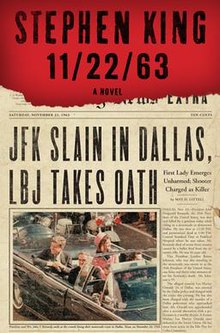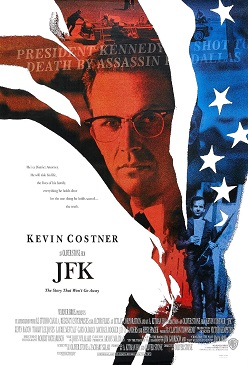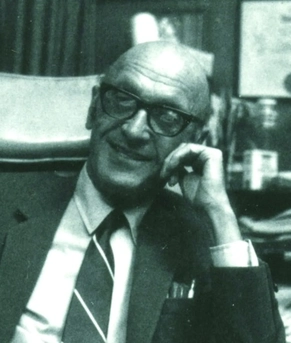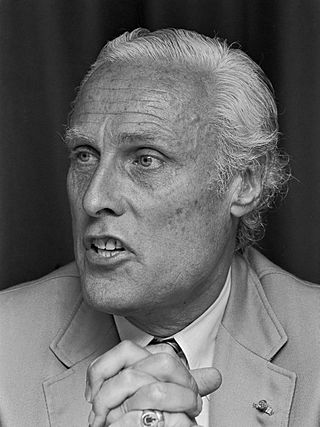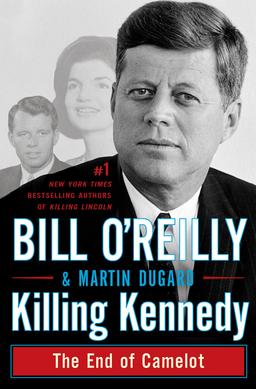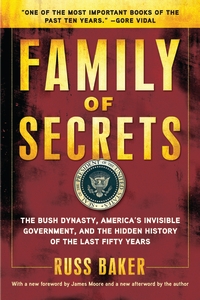Background
According to King, the idea for the novel first came to him in 1971, [15] before the release of his first novel, Carrie (1974). He was going to title it Split Track. However, he felt that a historical novel required more research than he was willing to do at the time and greater literary talent than he possessed. [3] Like his novel Under the Dome (2009), he abandoned the project, returning to the story later in life. [16]
King first talked publicly about the idea in Marvel Spotlight magazine issue The Dark Tower (January 27, 2007), prior to the beginning of the ongoing comic book adaptation of his Dark Tower series. In a piece in the magazine titled "An Open Letter from Stephen King", he writes about possible original ideas for comics:
I'd like to tell a time-travel story where this guy finds a diner that connects to 1958... you always go back to the same day. So one day he goes back and just stays. Leaves his 2007 life behind. His goal? To get up to November 22, 1963, and stop Lee Harvey Oswald. He does, and he's convinced he's just FIXED THE WORLD. But when he goes back to '07, the world's a nuclear slag-heap. Not good to fool with Father Time. So then he has to go back again and stop himself..... only he's taken on a fatal dose of radiation, so it's a race against time. [17]
Commenting on the book as historical fiction, King said: "This might be a book where we really have a chance to get an audience who's not my ordinary audience. Instead of people who read horror stories, people who read The Help or People of the Book might like this book." [3]
King and longtime researcher Russ Dorr prepared for the novel by reading many historical documents and newspaper archives from the period, looking at clothing and appliance ads, sports scores, and television listings. [3] The book contains detailed minutiae such as the 1958 price of a pint of root beer (10 cents) or a haircut (40 cents). King and Dorr traveled to Dallas, where they visited Oswald's apartment building (now a private residence), found the home of Gen. Edwin Walker (a target of an assassination attempt by Oswald), and had a private tour of the Sixth Floor Museum in the Texas School Book Depository. [3] King studied various conspiracy theories, ultimately coming to the conclusion that Oswald acted alone. [3] [18] King met with historian Doris Kearns Goodwin, an assistant to Lyndon B. Johnson and the author of books about several presidents, and used some of her ideas of worst-case political scenarios that might occur in the absence of Kennedy's assassination. [3]
Plot
Jake Epping is a recently divorced high school English teacher in Lisbon Falls, Maine, earning extra money teaching a GED class. Epping gives an assignment to his adult students, asking them to write about a day that changed their lives. One of the students, a learning disabled janitor named Harry Dunning, submits an assignment describing the night his alcoholic father murdered his mother and siblings with a hammer; the story emotionally affects Jake, and the two become friends after Harry earns his GED.
Two years after reading the essay, Jake is summoned by another friend, Al Templeton, the owner of a local diner. When Jake arrives at the diner, he is shocked to discover that Al has terminal lung cancer, despite appearing perfectly healthy the night before. Al instructs Jake to step into the back of the diner's pantry, where Jake finds a time slip leading to Lisbon Falls as it existed on September 9, 1958. After exploring the town, Jake returns to 2011 and learns that the portal leads to the same moment of the same day every time it is used, and that a visitor will always return to the present by a margin of two minutes.
Because the portal gives one the ability to alter the present by changing an event in the past, Al reveals that he had concocted a plan to prevent John F. Kennedy's assassination, hoping that doing so would stop the Vietnam War and change history for the better. He spent four years in the past after entering the portal the previous night, traveling to Dallas, Texas, to track Lee Harvey Oswald, plotting to kill the would-be assassin during his attempted murder of General Edwin Walker. His delay was due to the fact that he wanted to be absolutely sure that Oswald was the killer and would act alone. However, due to his cancer, Al is unable to continue his mission. He recruits a reluctant Jake to complete it.
As an experiment, Jake travels back to 1958 to save Harry's family, who will be killed by his father on Halloween night. Using the alias "George Amberson", Jake buys a car and travels to Harry's hometown of Derry, Maine, immediately disliking the place. Jake is able to find Harry's father, Frank Dunning, and track his movements. After saving all but one of Harry's siblings from Frank's brutal assault, Jake returns to 2011 hopeful that he improved Harry's life, only to learn that he indirectly caused Harry to die in Vietnam. Soon afterward, Al commits suicide.
Resigned, Jake re-enters the portal, travels back to Derry, and kills Frank while he is visiting a cemetery. After resolving one of Al's other missions—preventing a hunter from accidentally shooting a young girl—Jake makes his way, first to Florida, then to Texas to wait for Oswald's arrival. He eventually settles in Jodie, a town on the outskirts of Dallas, where he becomes a full-time English teacher at a local consolidated school. Jake has a positive effect on the students of the school, and is respected in the town. At the wedding reception of the high school's librarian Mimi Corcoran (who is retiring), Jake meets Sadie Dunhill, the new librarian. Soon after, Mimi dies. Jake and Sadie are tasked with organizing a memorial assembly, bringing them closer together. Over time, Sadie and Jake fall in love and begin a relationship. Sadie reveals that her ex-husband, John Clayton, had many odd habits owing to his obsessive compulsive disorder and was emotionally distant.
Meanwhile, Jake surveils Oswald and his family, renting properties close to them and even installing microphones in their apartment. He briefly interacts with Marina Oswald. In the notebook Al gave him, Al states that George de Mohrenschildt may have been involved in the attempted assassination of Walker. After witnessing and listening to Oswald and de Mohrenschildt's interactions, Jake plans to stalk Oswald on the date of the attempted assassination to see if de Mohrenschildt was present, but Clayton finds Sadie and holds her hostage. He calls Jake and threatens to kill Sadie, slashing her cheek open while Jake is on the line. Jake arrives with Deke Simmons, the former principal of the high school and Mimi's widower, and saves Sadie, but Clayton cuts his throat in front of them. Jake stays with Sadie in the hospital as she recuperates and as a result is not able to watch Oswald as he attempts to kill Walker.
As the date of the assassination approaches, Jake gambles on a boxing match and wins, gaining the attention of local businessman Akiva Roth, who visits Jake's house in Dallas with two associates and has them beat Jake. As a result, Jake loses his memories of Oswald and spends weeks in the hospital and in a rehabilitation center. After remembering Al's notebook, Jake retrieves it and forms a plan to kill Oswald inside the Texas School Book Depository on the day of the assassination. He writes a letter to Sadie asking her not to try to find him for her safety. Sadie nevertheless finds him in Fort Worth and the pair attempt to make it to Dallas in time. Along the way, they experience a bus accident and two car accidents, which Jake explains as the past trying to stop them. They arrive at the Depository just in time and Jake successfully prevents Oswald from shooting Kennedy. Secret Service agents shoot Oswald dead, but not before Oswald shoots Sadie in the process; she dies in Jake's arms.
Jake is regarded as a hero and is thanked by both Kennedy and his wife. Though the FBI does not suspect him of being involved in the attempted assassination, one agent deduces that he was sent by someone to Texas and tells him to leave before they can find out where he came from. Jake returns to Lisbon Falls and is met by "The Yellow Card Man" (so called because he wears a yellow card in his hat), who tells him to go back to 2011 and see what he has done.
Once in the future, Jake discovers that Earth has become a wasteland after a nuclear war in 1974, and that natural disasters occur regularly. Through a conversation with Harry, alive in this timeline, he finds out that many historical tragedies such as the Jonestown incident happened with an increased death toll, and the Civil Rights Act of 1964 was never passed. The planet is on the verge of collapse, and many countries are involved in various recurring wars. Jake goes back to the past and is told by the Yellow Card Man that every trip causes another "string", an alternate reality with a different past and different future. These strings overlap and eventually can cause reality to fall apart, as evidenced by what Jake saw when he returned to 2011. The Yellow Card Man says that he is part of a group of people who monitor time-slips, and who are often driven to insanity because of the many realities that are created when someone travels to the past. He instructs Jake to return to 2011, allowing the future to return to normal. Jake instead stays in 1958 for some time, contemplating whether to warn Sadie about John Clayton or not.
Jake eventually returns to the future, finding that it has returned to normal. He moves out of Lisbon Falls and finds that Sadie is being celebrated as a "Citizen of the Century" in Jodie, and he goes to the party being held. Sadie, now in her eighties, spent the time between 1958 and 2011 doing charity work and served terms as mayor and in the Texas legislature, and is beloved by the people of Jodie. Jake asks her to dance, and when she asks who he is, he responds, "Someone you knew in another life, honey."
Alternate ending
Stephen King published an alternate ending on his official website on January 24, 2012, in which Jake finds a November 22, 2013, news article where Sadie has turned 80. She had married a man named Trevor Anderson, with whom she had five children, eleven grandchildren, and six great-grandchildren. Before release, this ending was scrapped and swapped for the published version at the suggestion of King's son, writer Joe Hill. [23]
Critical reception
The reviews for 11/22/63 were generally positive, with The New York Times selecting the novel as one of its top five fiction books of the year [24] and the Las Vegas Review-Journal calling it King's "best novel in more than a decade". [25] Metacritic judged thirty positive reviews, four mixed reviews, and two negative reviews. [26] According to Book Marks, the book received a "positive" consensus, based on thirteen critic reviews: six "rave", four "positive", one "mixed", and two "pan". [27] Culture Critic assessed critical response as an aggregated score of 80%, [28] while The BookScore gave it an aggregated critic score of 7.6/10 based on an accumulation of British and American press reviews. [29] On January/February 2012 issue of Bookmarks, the book received a 



 (4.0 out of 5) based on critic reviews with a summary saying, "The veteran's got another hit on his hands". [30] [31]
(4.0 out of 5) based on critic reviews with a summary saying, "The veteran's got another hit on his hands". [30] [31]
NPR book critic Alan Cheuse found no fault with the structure, commenting: "I wouldn't have [King] change a single page." [32] USA Today gave the novel four out of four stars, noting the novel retains the suspenseful tension of King's earlier works but is not of the same genre. "[The novel] is not typical Stephen King." [33] Janet Maslin of The New York Times also commented on the genre change and pacing but felt the writer has built the narrative tightly enough for the reader to suspend disbelief. "The pages of '11/22/63' fly by, filled with immediacy, pathos and suspense. It takes great brazenness to go anywhere near this subject matter. But it takes great skill to make this story even remotely credible. Mr. King makes it all look easy, which is surely his book's fanciest trick." [34] The review in the Houston Chronicle called the novel "one of King's best books in a long time" but "overlong", noting: "As is usually the case with King's longer books, there's a lot of self-indulgent fat in 11/22/63 that could have been trimmed." [35] The review in the Bangor Daily News commented that the novel "[is] another winner", [36] but provided no critical review of the plot construction. Lev Grossman, in reviewing the novel for Time , called the novel "the work of a master craftsman" but commented that "the wires go slack from time to time" and the book wanders from genre to genre, particularly in the middle. [37] More pointedly, Los Angeles Times book critic David Ulin called the novel "a misguided effort in story and writing"; Ulin's primary criticism is the conceit of the story, which requires the reader to follow two plotlines simultaneously—historical fiction built upon the Kennedy assassination as well as the tale of a time traveling English teacher—which adds a page load to the novel that Ulin found excessive. [38]
